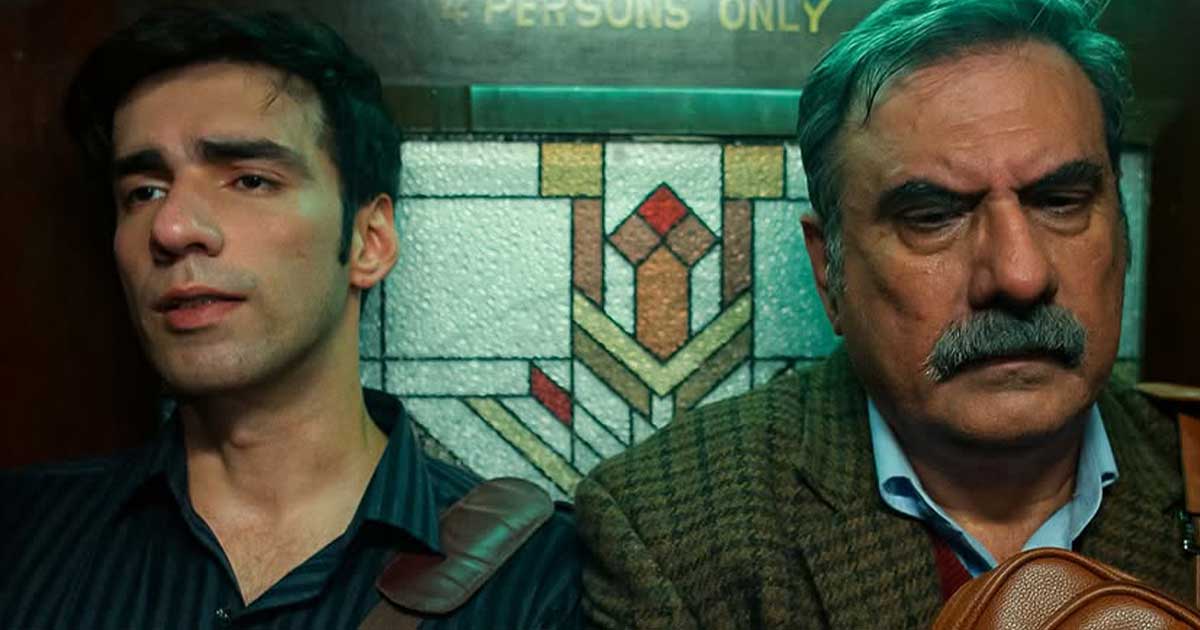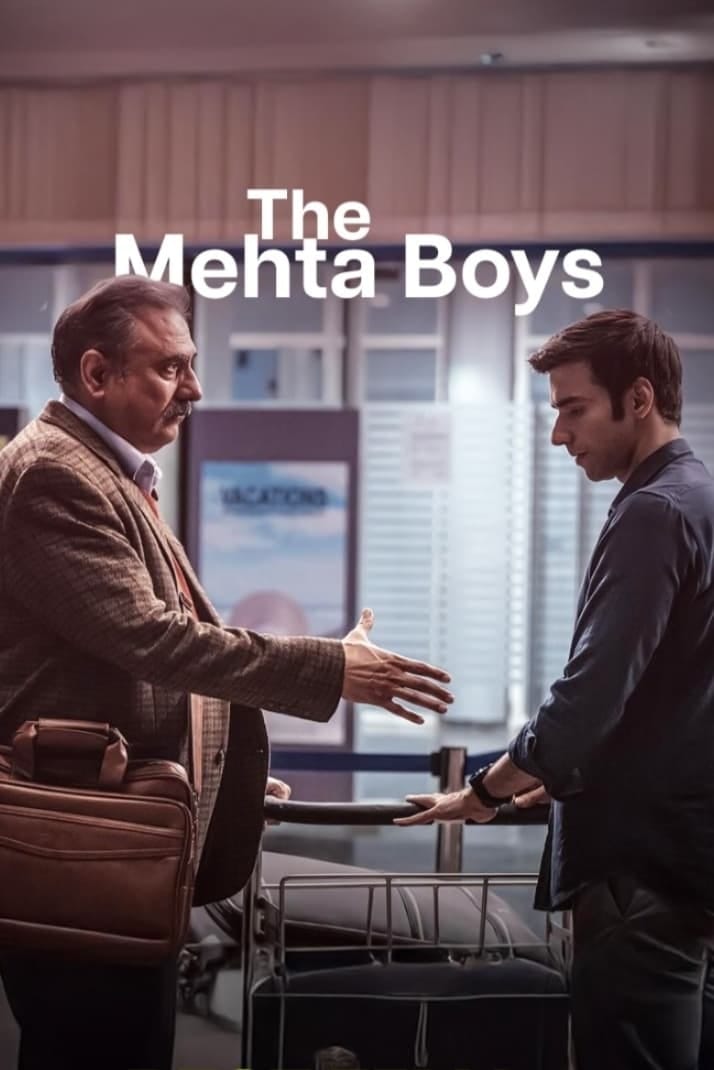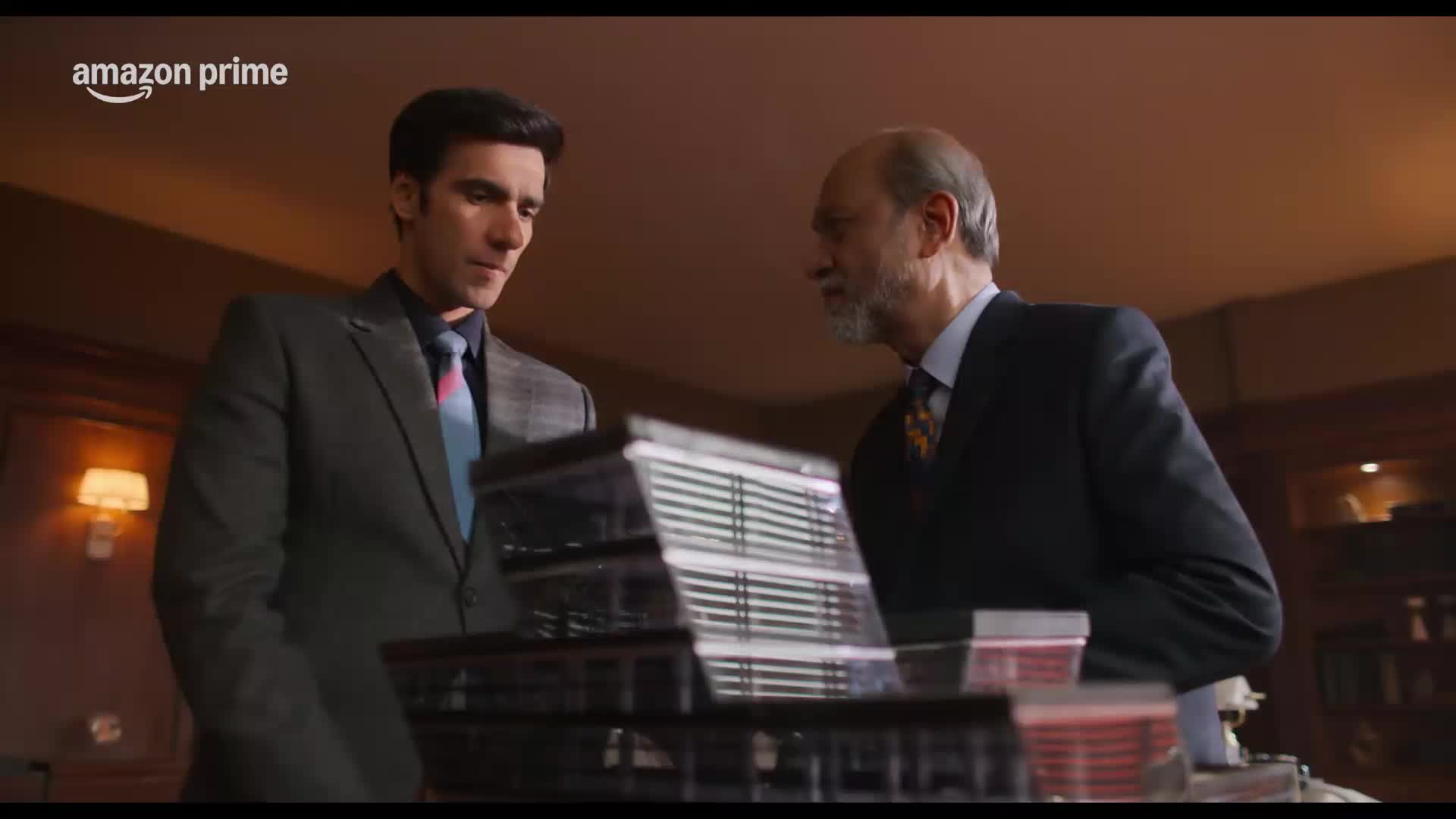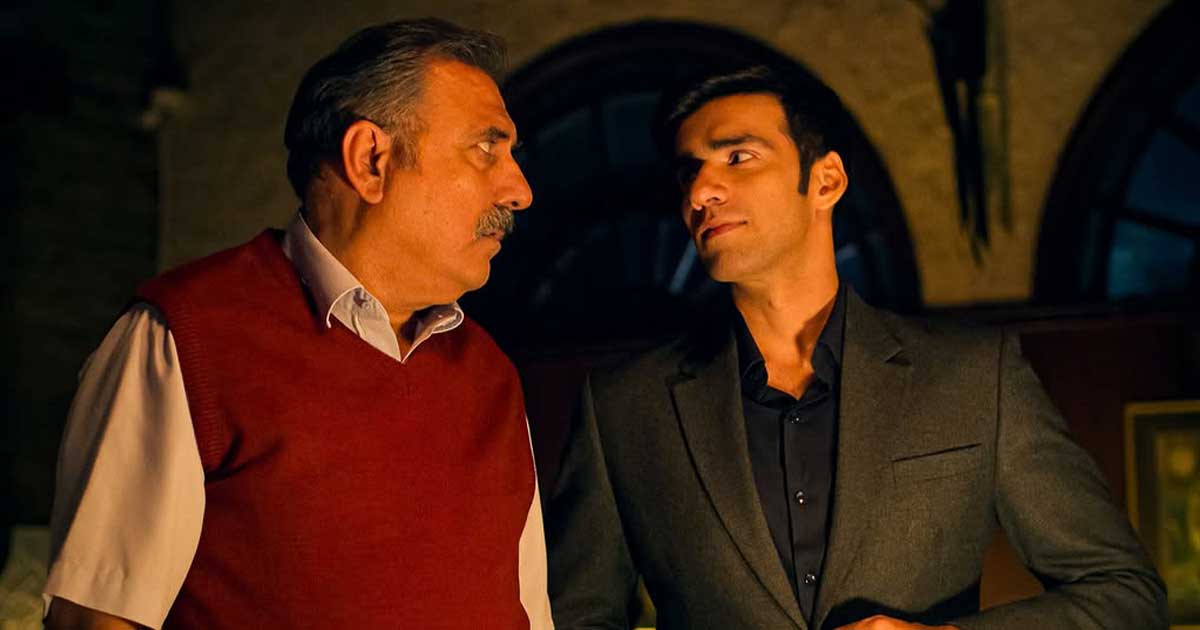The gaps in relationships between fathers and sons is kind of taken for granted. It is accepted as a fact of life. How often do we examine the intricate whys of it? We saw the toxicity of father and son in Sandeep Reddy Vanga’s sophomore Animal and Vikramaditya Motwane’s debut Udaan. In Shoojit Sircar’s Piku, we also saw the dynamic hyper-reactive complexities between father and daughter; and in few other film. Yet, none of the films mentioned above tried to answer the why behind the complexities. The Mehta Boys also didn’t try to examine it. Yet, it is a such a beautiful film to cherish that it doesn’t have any cognitive demands from you; except the heart to understand the vulnerabilities of both father and son’s relationship.
Father-son: the never-explained gap
Amay (Avinash Tiwary) is an architect with low self-esteem in Mumbai. He is too timid to speak up about his ideas and opinions. There is a constant feeling of imposter syndrome within him and he is waiting to win the approval from a parental figure. The relationship with Shiv, his father, (played very delicately by Boman Irani) is muddled and it is unexplained. The reluctance of makers to explain the origins & reasons for dysfunctional relationships is not to be blamed. Because, we all might have made peace with the fact that human relationships are too complex to comprehend. And, we might have also made peace with adamant parents like Shiv, if not in the attitudes of Animal and Udaan, but in the somewhat similar spirit of Piku.
Boman Irani as a director and writer in The Mehta Boys took this already normalised trope of dysfunctional parent-child relationship and made a truly heartwarming tale that can deeply resonate with a lot of urban youth and elders who know the pain of leaving a home to live in an apartment with their kids that is named as home. And, in that same apartment (read home) of Amay, his father had to spend his weekend because, Shiv’s flight to Florida got postponed to Monday and Anu (Amay’s sister who lives in Florida, played by Puja Sarup) left the two man-children in one home.
The generational gap in The Mehta Boys
Shiv is an old school guy– who “academically” mocks his son for the limitations of producing architectural artwork without his laptop. He believes that great art work emerged way before technology, with just pen and paper. However, his father too was a new school guy in his youth– who got mocked by his father for running a typing institute that undermines the pen and paper. This crucial information was very subtly plugged in during their casual conversation after a couple drinks on a candle lit night (that later turned into a hostile confrontation, as expected).
This extra snippet of information in The Mehta Boys helps you to understand how basic the generational transformation is and yet we often fail to acknowledge it in the pursuit of romanticisation of past and future. This scene is also very crucial, because this is the moment where you understand who is really the nitpicker (both are, after all they are of the same family!). And so, thus the empathy shifts from son to father.
The parent-child phenomenon
Suddenly, the parent becomes the child and the child becomes the parent. This parent-child and child-parent transformation is not so sudden. Yet, you suddenly feel it in your life. There is a certain unexpressed pressure in addressing the unacknowledged child in an adult.
Amay frustratedly asks his girlfriend, Zara– after a minor accident during the father and son’s argument in the middle of the road on a rainy night– to decide if she wants to treat his father as a child, or as an adult.
Amay frustratedly asks his girlfriend, Zara– after a minor accident during the father and son’s argument in the middle of the road on a rainy night– to decide if she wants to treat his father as a child, or as an adult. Zara– being the anchor woman after his dead mother in their father-son relationship– reminds Amay who is really the child and who is the father.
The story of The Mehta Boys co-written by Alexander Dinelaris (Oscar-winning Birdman fame) and Boman Irani slowly pulls you into the vulnerabilities of the characters, especially of Shiv’s. At the dinner table, when the father meets Zara for the first time, he narrates the anecdote when he got to know that her wife was the one. As he tells his story, the cinematographer Krish Makhija slowly revolves the camera keeping Boman’s shimmering face at the center.
Right at the moment when he talks about the humiliating experience of not having enough money to buy the saree that he wanted his wife to wear, we see the face of Avinash Tiwary that shifts from a wholesome smile to anxious awkwardness. Because, he told the waiter to split the final bill into two halves despite his father insisting that ‘this perfect evening‘ was his treat.
This scene is of the father facing humiliation once again and, the son humiliating himself.
This scene is of the father facing humiliation once again and, the son humiliating himself. Once again, it is very cinematically choreographed by Krish Makhija– showing the right elements at the right time– shows the expertise that Boman Irani had garnered for years as an actor.
Architecting the relationships in The Mehta Boys
This tale of two man-children in The Mehta Boys needed emotional sensitivity to understand where the harsh emotional immaturity was coming from. The role of Amay’s dead mother is taken by an emotionally matured Zara and Amay’s sister, Anu. We don’t know much about Zara, except a few minor snippets that give us space to understand her psyche. For example, she calls the waiter in a fancy restaurant by his name on his badge. And, she also invokes the son’s immaturity by reminding Amay of who really the child is.
She also encourages Amay to present his original architectural designs. She does the pep talk, yet she doesn’t push him. But, she backs his radical ideas with her data-led expertise in the boardroom. Zara becomes the anchoring point in Amay’s life. Boman Irani dealt with Zara’s character very maturely, in a non-preachy way, escaping the overused template of women as the saviours of a dysfunctional house.
Amay rekindles the relationship with his father at the end, as expected and as you’d rightfully hope for. This reconciliation at Shiv’s real home happens only after Amay opens up and defends his designs in the boardroom. He takes his radical designs that truly represents the ancestral spirit of India and not some random “modern glass and steel buildings.” The arc of reconciliation with his work and family is well matched and justified as Amay too realises that his father was fighting with him only to prepare him in life. It is truly a heartwarming moment when a parent acknowledges the original work of his child with happy-tears. Both Boman Irani and Avinash Tiwary nailed their performances.
It is truly a heartwarming moment when a parent acknowledges the original work of his child with happy-tears. Both Boman Irani and Avinash Tiwary nailed their performances.
Boman Irani has surely laddered up as a sensitive writer-director. His directorial debut The Mehta Boys is a well-written dysfunctional family drama of father and son that overwhelms your heart and, perhaps, may fill your eyes with a drop or two at the end.
The Mehta Boys is now streaming on Amazon Prime Video.
About the author(s)
Azdhan (He/Him) is a full-time film critic freelancing for Feminism In India. If he is not reading or writing, he will just be zoning-out– even if there is no window– always thinking of writing his next novel to adapt it into a screenplay. The backend process of trying to build something that can solve urban loneliness is also always on his mind.







